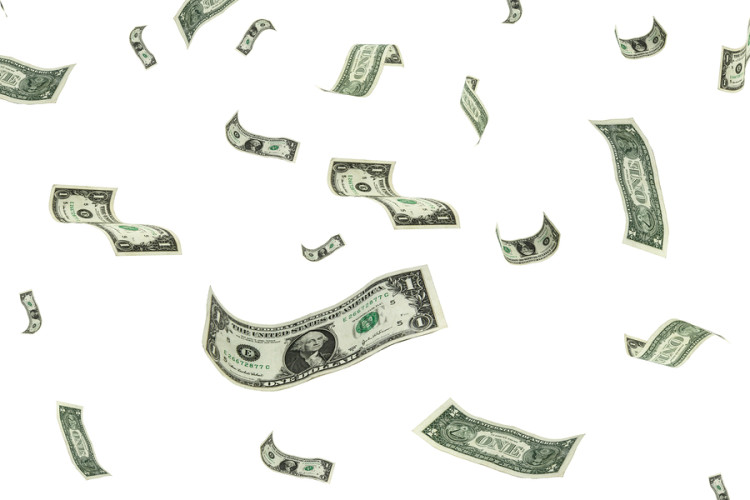Dollar Diving on Obama Report Signals Currency-Strength Concern

©2015 Bloomberg News
NPNPZS6TTDS3
(Bloomberg) — The dollar has lost gains made after better- than-expected jobs data amid concern the U.S. government will take steps to limit an advance underpinned by the prospect of the Federal Reserve raising interest rates.
A gauge of the U.S. currency retreated to lower than it was before Friday’s payrolls figure and boosted expectations for the first increase in borrowing costs since 2006. The greenback fell on Monday after a French official told reporters U.S. President Barack Obama had said at the Group of Seven summit dollar strength could be a problem. It remained weaker even as Obama denied at a press conference that he made that comment.
“The dollar’s looking increasingly capped in the near term, even if it’s still a buy over the longer term,” said Keisuke Hino, a foreign-exchange trader at Mizuho Bank Ltd. in New York. “It’s hard to believe a French official would say such as thing out of the blue. It seems there is a reason for such a report to come out and we need to be wary.”
The Bloomberg Dollar Spot Index fell 0.1 percent to 1,179.79 at 12:03 p.m. in Tokyo after dropping 1 percent Monday. It rose 0.8 percent on Friday after the payrolls report.
The dollar fell 0.3 percent to $1.1321 per euro, adding to Monday’s 1.6 percent loss. The U.S. currency traded at 124.72 yen from 124.46 on Monday, when it lost 0.9 percent. It reached 125.86 on Friday, the highest level since June 2002.
Obama Denial
The French official, who asked not to be identified because the discussions were private, told reporters Obama had said geopolitical risks, including Greece, create volatility in financial markets, and in that context, the strong dollar posed a problem. Obama later denied he expressed concern about the greenback’s strength. “I did not say that,” he told a news conference at the summit in southern Germany.
“It’s very unusual for the president to be talking about foreign exchange,” said Ray Attrill, global co-head of currency strategy at National Australia Bank Ltd. in Sydney. “At the same time, it’s pretty clear from a lot of Fed commentary we’ve had this year that the strength of the dollar is more of a worry for the Fed than I perhaps would have expected at the beginning of the year.”
The greenback is the best performer this year after the Swiss franc, gaining 4.2 percent against a basket of developed- nation peers tracked by Bloomberg Correlation-Weighted Indexes.
The impact of its strength on exports could be “larger and longer-lasting than previously anticipated,” the central bank said in minutes from its last meeting.
The U.S. currency’s appreciation is hurting growth and may push back the timetable for a tightening of policy, Fed Governor Lael Brainard said last week in Washington.
The dollar weakened for a second day against the euro Tuesday as an increase in German bund yields narrowed the premium offered by U.S. Treasuries. U.S. benchmark 10-year notes yielded 1.50 percentage points more than similar-maturity German bunds, compared with about 1.90 on March 11.
–With assistance from Mika Otsuka in New York.
To contact the reporters on this story: Chikako Mogi in Tokyo at cmogi@bloomberg.net; Netty Ismail in Singapore at nismail3@bloomberg.net To contact the editors responsible for this story: Garfield Reynolds at greynolds1@bloomberg.net Naoto Hosoda, Nicholas Reynolds







No Comment